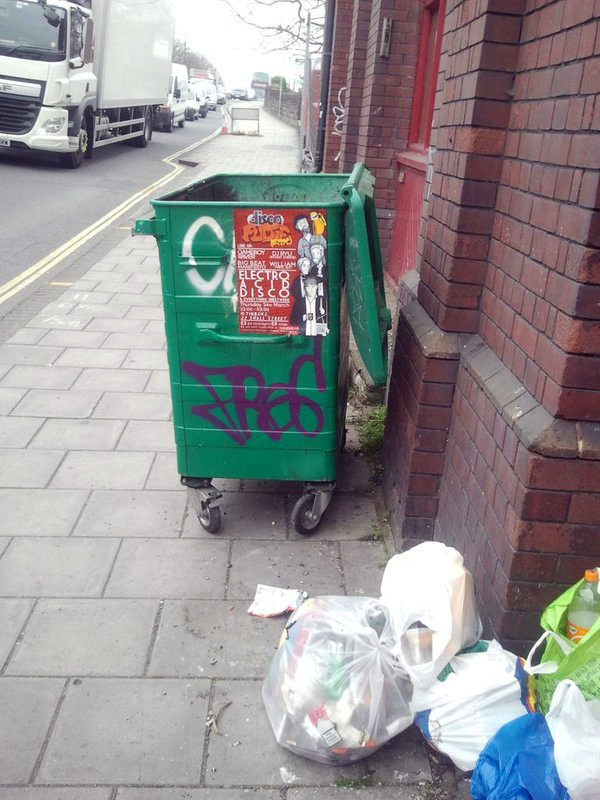Tidy BS5 – more evidence that Bristol is 2 cities
I’m indebted to Twitter user @StapletonRd for the following photograph of communal bins in the prosperous Clifton area of Bristol.

As you can see, no effort – or expense – has been spared to make communal bins acceptable to the area’s rich residents, who have sharp elbows and loud voices, not to mention the ear of the council.
Now let’s contrast this with Milsom Street in Easton, where communal bins were imposed on residents in 2012 after a botched council consultation (with the emphasis on the first syllable of consultation. Ed.).

Somewhere under that pile of fly-tipped furniture (reported to Bristol City Council this morning. Ed.).
In Easton the communal bins were introduced by the council as a remedy to tackle an endemic local fly-tipping problem. One can see how well it’s worked.
One can also see that no effort has been made to make the communal bins more attractive to Easton residents: no off-street siting of bins; no wooden fencing to screen them from delicate eyes and so on.
Many years ago, east Bristol residents campaigning to retain public access to Packer’s Field, 7 acres of much-used green space for informal public recreation, were told by council officers that they “were not the kind of people the council listened to“.
By the unequal treatment of Clifton and Easton residents in respect of communal bins, that attitude is still alive, well and kicking very, very hard indeed down at the Counts Louse (or City Hall as some now call it. Ed.).
One can only hope that after the mayoral and council elections on Thursday, those newly elected will finally start to break down the discrimination and unequal treatment of different areas that has blighted Bristol City Council’s administration of the city for generations.




 Lawrence Hill ward councillor
Lawrence Hill ward councillor 